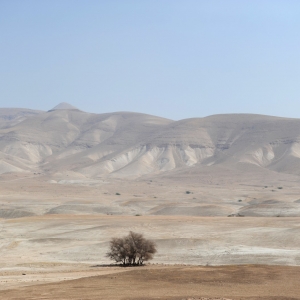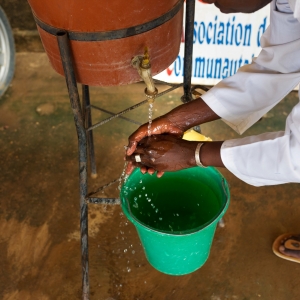Federal Water Tap, November 30: Army Corps Rejects Contested Pebble Mine
The Rundown
A National Intelligence Council memo finds water risks giving rise to economic stress and political instability. The Army Corps denies a permit for a mine in the headwaters of Alaska’s Bristol Bay. The Army Corps also grants a permit for replacing an oil pipeline in northern Minnesota and withdraws from a project to deepen a shipping channel for oil tankers through San Francisco Bay. A FEMA report highlights the importance of building codes in reducing property damage from natural hazards. USAID contributes to a dioxin cleanup in Vietnam. The National Drinking Water Advisory Council will hold a public meeting this week. And lastly, President-elect Joe Biden names a climate envoy and says a climate policy coordinator will be forthcoming.
“More frequent and severe water security problems during the next 20 to 30 years are likely to touch almost all elements of global life, including personal security, economic growth, political stability, and interstate conflict.” — Excerpt from a National Intelligence Council memo that highlights water-related threats to economic and political stability.
By the Numbers
$113 million: U.S. government funding to date to clean up dioxin in soil and groundwater at Bien Hoa Airbase Area in Vietnam. Dioxin is also known as Agent Orange, the leaf-killing chemical used by U.S. forces during the war. Bien Hoa is the largest site of dioxin contamination remaining in the country. The U.S. has pledged $183 million for the cleanup. (USAID)
In context: Fifty Years After, a Daunting Cleanup of Vietnam’s Toxic Legacy
News Briefs
Army Corps Rejects Pebble Mine
Is the second time the charm?
The decade-long fight for the proposed Pebble Mine in Alaska has likely ended as the Army Corps of Engineers denied it a permit on Wednesday, the New York Times reports.
The Army Corps’ Alaska District Commander, Col. Damon Delarosa, said the mine did not meet the standards of the Clean Water Act and would be “contrary to the public interest.”
Opponents to the plan have argued that the mine would cause irreversible damage to breeding grounds for salmon, while supporters have cited economic benefits to the project. The Obama administration vetoed the project, but it was revived, temporarily by the Trump administration.
Army Corps Permit for Line 3
The Army Corps granted a permit last week to Enbridge so that the Canadian oil transport company can replace its Line 3 pipeline, which runs from Alberta to refineries in the Midwest.
The Line 3 replacement will cross more than 330 miles of northern Minnesota, where conservation groups and Native American tribes are opposing the $2.9 billion project. The opponents say that the pipeline replacement will contribute to global climate change and that the risk of oil spills in local waters is too high.
Enbridge is waiting on an additional state permit before it begins construction. Once that is secured, the company says that the project could be completed in six to nine months.
Army Corps Withdraws San Francisco Bay Dredging Study
The Army Corps announced that it would not proceed with a proposal to deepen more than 13 miles of shipping channel in San Francisco Bay that primarily serves oil tankers.
Two potential local partners — the Port of Stockton and Contra Costa County — said that they could not participate in the project and the Army Corps could find no other supporters. The purpose of the project was to allow oil tankers to carry a fuller load — and thus make fewer transits of the channel.
Studies and Reports
Global Water Risk
A National Intelligence Council memo finds that water scarcity is hurting economies and giving rise to political instability.
The eight-page memo is a brief review of global water challenges. It warns that rising demand and shrinking supply are worsened by poor governance and mismanagement of water.
It’s not the first time the NIC has weighed in on the issue. Analysts completed a substantially more in-depth assessment of water risks in 2012.
FEMA Report on Building Codes
Building codes prevent damage from water, wind, and earth-shaking, according to a national analysis by FEMA.
The study modeled damages from floods, hurricane winds, and earthquakes that did not occur to buildings because they were constructed with stronger design standards. It found $1.6 billion in avoided losses between 2000 and 2018 for buildings with the most up-to-date codes.
Building code adoption and enforcement happens at the state and local level. According to the report, about 70 percent of new buildings nationally meet the strongest codes.
On the Radar
Biden Makes Climate Appointment
President-elect Joe Biden named former secretary of state John Kerry as his climate envoy.
Kerry, who will also serve on the National Security Council, will be joined by a White House climate policy coordinator, Biden announced, saying he will make that appointment in December.
The policy coordinator “will lead efforts here in the U.S. to combat the climate crisis and mobilize action to meet this existential threat,” Biden said.
Texas Oil and Gas Wastewater
Texas officials have asked the EPA for the authority to oversee permitting of oil and gas wastewater discharges in the state.
Public comments are being accepted through January 11. Submit them via www.regulations.gov using docket number EPA-R06-OW-2020-0608.
In context: Permian Oil Boom Uncorks Multibillion-Dollar Water Play
National Drinking Water Advisory Council Meeting
The council that advises the EPA on matters related to drinking water will hold a virtual meeting on December 2 from 1 p.m. to 5 p.m. Eastern. The meeting is open to the public.
The agenda includes items on regulatory updates and water utilities and Covid-19.
To attend, send an email to corr.elizabeth@epa.gov with NDWAC Meeting in the subject line. In the body, add your first and last name and organization, if applicable.
Water Access in Massachusetts
The Massachusetts Advisory Committee to the U.S. Commission on Civil Rights will hold a public teleconference on December 16 at 11:30 a.m. Eastern. The committee will review its report on water access and affordability in Massachusetts.
The dial-in number is 1-800-353-6461 and the conference ID is 2739300.
In context: Amid Rising Water Rates, Massachusetts Cities Have Inequitable Affordability Policies, Report Finds
Federal Water Tap is a weekly digest spotting trends in U.S. government water policy. To get more water news, follow Circle of Blue on Twitter and sign up for our newsletter.
Brett writes about agriculture, energy, infrastructure, and the politics and economics of water in the United States. He also writes the Federal Water Tap, Circle of Blue’s weekly digest of U.S. government water news. He is the winner of two Society of Environmental Journalists reporting awards, one of the top honors in American environmental journalism: first place for explanatory reporting for a series on septic system pollution in the United States(2016) and third place for beat reporting in a small market (2014). He received the Sierra Club’s Distinguished Service Award in 2018. Brett lives in Seattle, where he hikes the mountains and bakes pies. Contact Brett Walton





Leave a Reply
Want to join the discussion?Feel free to contribute!